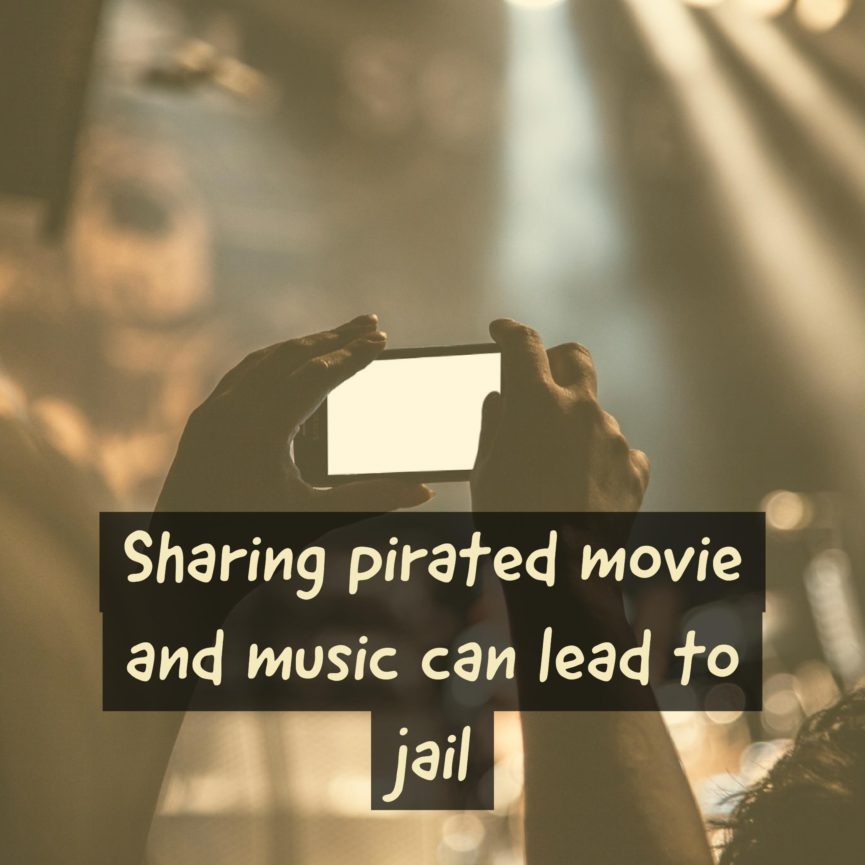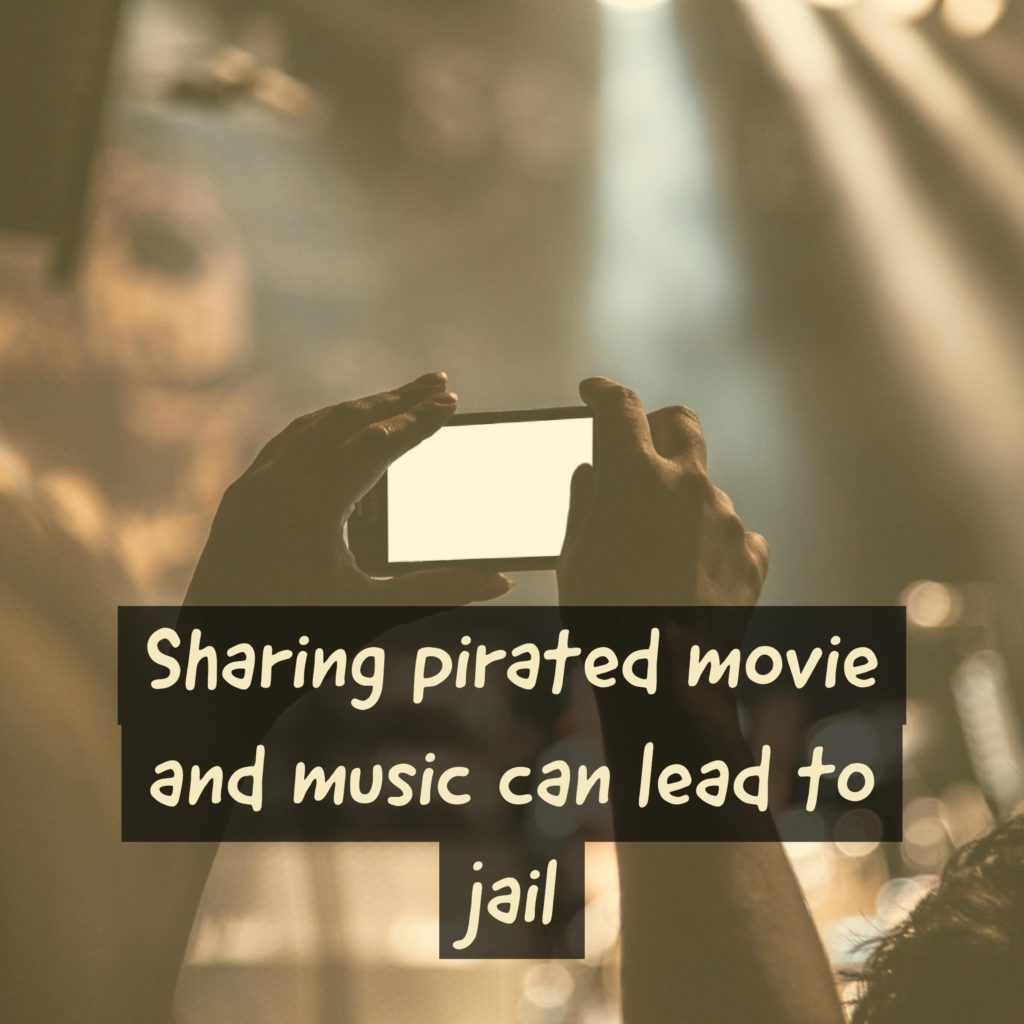Sharing pirated movie and music can lead to jail

The problem of piracy in the movie biz does not need introduction. The number of pirated movie copies being openly sold in the market whether secretively or publicly, is massive. Walk into any corner of a local market and you can find people selling DVDs containing your favorite music and movies without any regard to copyright. Then there are those websites where you can “watch movies for free”. What the entire nation needs to understand as one big community is that there is a limit to these free lunches that you think you get. Upon thorough analysis of traffic and search queries it has been found that most people are looking for either this or that but they want a “free download”. The odds have luckily been in our favor that these companies, production houses and businesses don’t usually sue the common man. They try to find the distributors and nab them instead.
This becomes the reason for many other problems like ransomware but that is a topic for some other time. Now, an amendment in the Copyright Act, 1957 made in 2012 has made it clear (as far as the bare reading goes) that even sharing of pirated movie links and files is going to be punishable by law. In my legal opinion, if you look closely at Section 65B of the Act under clause 2 there is a clear demarcation to the point that even when somebody communicates to the public without authority any work from which the Digital Rights Information is removed, he shall be punishable for up to 2 years.
Also read: Sent an obscene photo on a WhatsApp group?
When we talk about DRI, it is to read as synonymous to DRM (Digital Rights Management) which means that these are technological safeguards used against copyright infringement. Again, at this stage, it does not make sense to get into the details of all of that. I can give you a perfect example to read right now. You must be aware about on demand video services like Hotstar, Amazon Prime and Netflix etc. They all employ TPMs and DRMs (lingo you can leave aside if it doesn’t bother you, I’ll be happy to take any queries just in case it does). Let us say somebody did circumvent or remove the DRM and got the video without any subscription. Now when it reaches you and you forward it to your friends, this can be termed as communication to the public. Even two people are enough public to give rise to an action.
When I compare our situation to some foreign jurisdictions I see, in some nations even file sharing is illegal. One EU case has legalized caching and temporary storage but if the content that is cached is in itself pirated, will that be considered legal as well? That is a question still open ended. Hon’ble Bombay High Court had opined last year that watching pirated content is not illegal but I am still of the legal opinion that even consumption of pirated content should be illegal as per bare reading of Section 63 of the Act. Good thing is we do not have such law that can make things very difficult but a law that prevents sharing of pirated movie and music links or the files as such is in place. So please be vigilant while you share or send someone something online.
